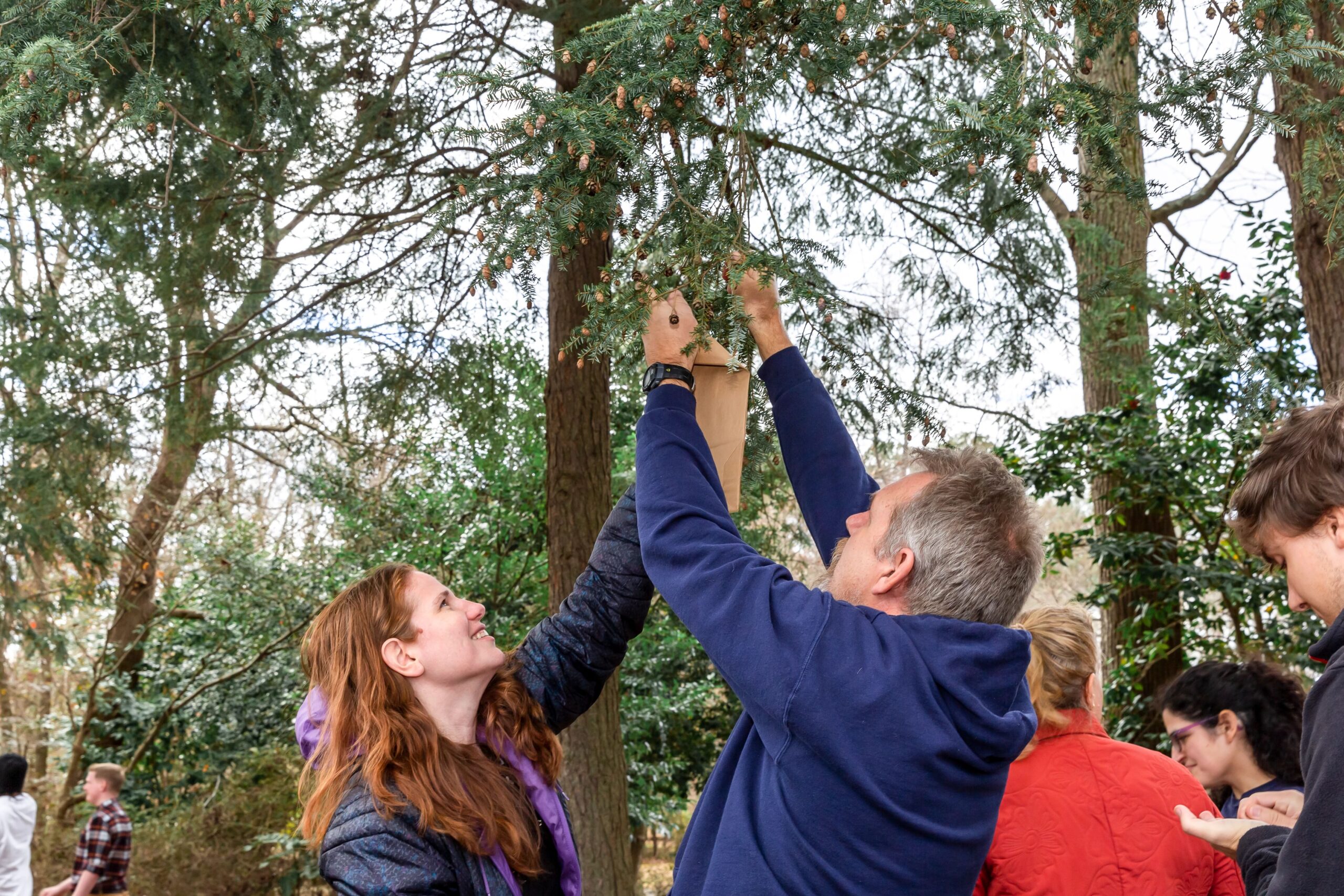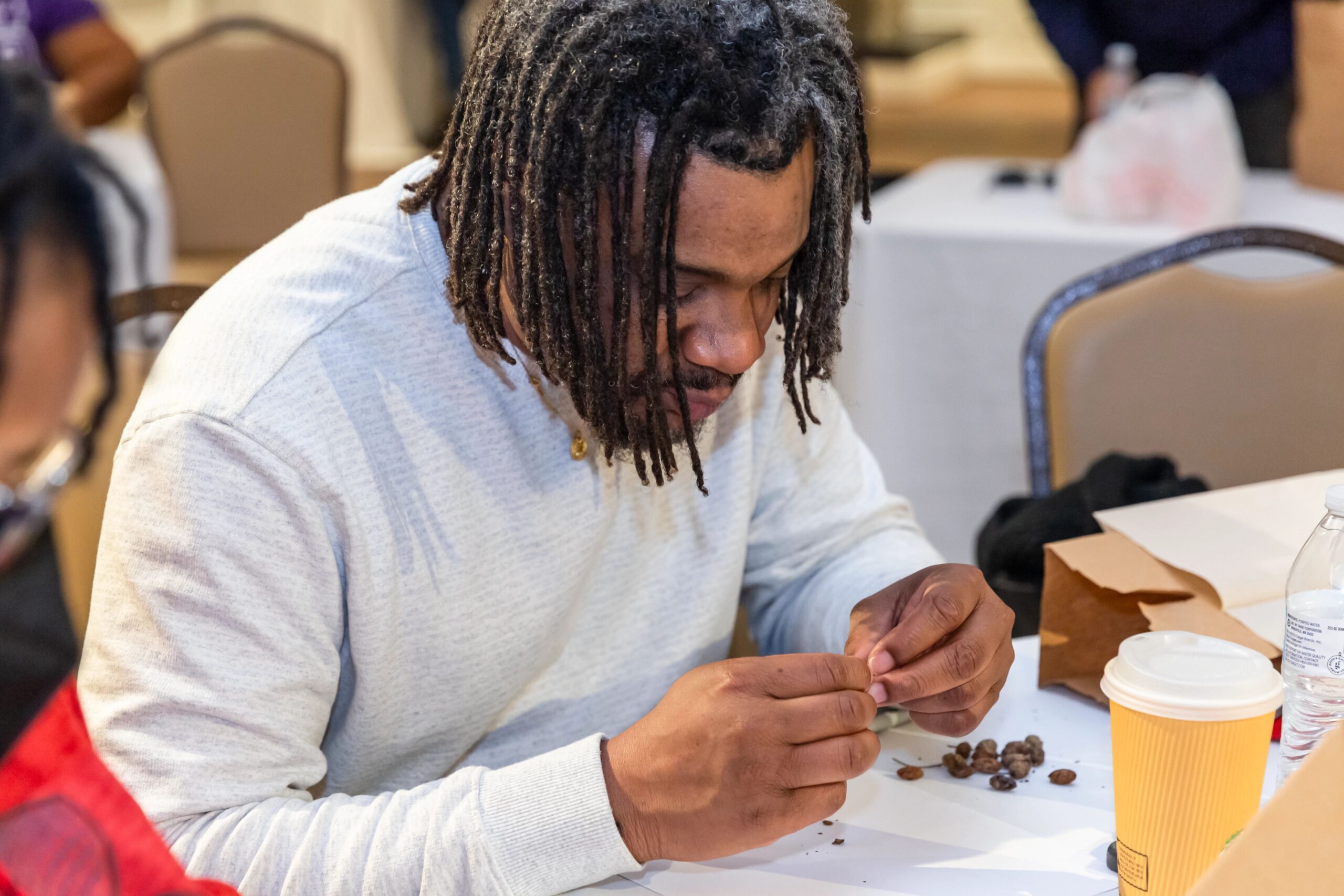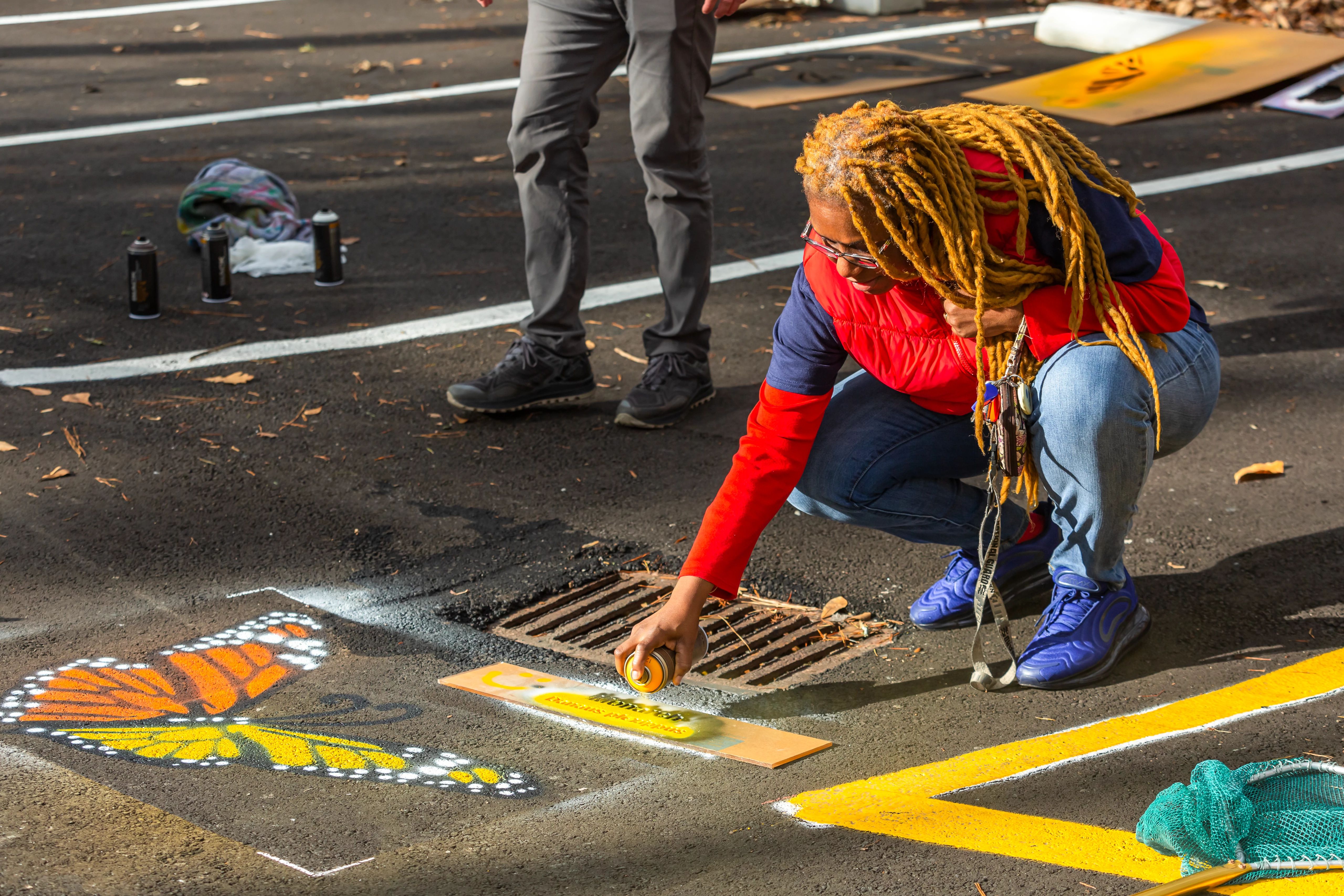If one were to look at the news surrounding the health of the environment, one would likely be confronted with all sorts of “doom and gloom” stories. Stories of polluted waters and air and sick or dying wildlife are constantly pushed out by the media. With all of these stories, it becomes hard to think that humans can change the narrative that is so often told.

What would happen if a new story was told instead of one that instills hopelessness and fear? One that talked about the problems but also offered ways that help mitigate the issues. Stories like these, which provide a glimmer of hope, could empower enough people to want to take action to improve their outdoor environment. Through the B-WET program, Newport News High School biology and environmental science teachers work with their students to encourage that narrative.
In January, The Mariners’ Museum and Park hosted 31 high school science teachers from Newport News Public High Schools to participate in the winter portion of the B-WET teacher professional development. As part of the B-WET program, teachers work with the Museum and local partners to participate in various outdoor and environmental activities.
Through these activities, the Mariners’ B-WET team aims to give teachers ideas to get their students involved with action projects. The idea behind action projects is to have the students develop a project that gives back to their community. That can be as simple as planting native plants in a school garden or as involved as writing a letter to a member of Congress requesting a law be changed. Whatever project the students decide on, the hope is that they not only give back to their community but also help make a positive impact on the environment.
Planting the Future
During the professional development session, one of the environmental topics discussed was native and non-native plants. Native plants, meaning plants that are originally from the region in which they are found, are vital to the health and wellbeing of the environment. They support wildlife in numerous ways. However, many native plants are threatened from things like deforestation and habitat competition.

While working with partners and interns from Christopher Newport University, teachers learned about certain native plants and why they are so vital to this region of Virginia. The teachers also learned how to identify native plants, sustainably collect their seeds, and properly plant the seeds to grow new plants.
Although planting seeds might seem like a minor task, it has the potential impact to grow into something beautiful that can further support other wildlife in the Park, such as insects, birds, and mammals. This simple example of planting seeds gives the teachers and students a tangible way to take ownership of the health of their community.
Painting the Way to a Healthier Bay
While being immersed in the outdoors might sound amazing to some, there are others that do not enjoy being hands-deep in dirt. For the teachers and students that do not want to plant or play in dirt, the B-WET team wanted to provide them with another way to give back to their community. This time, the focus was shifted to the water.
The Mariners’ Museum owns 550 acres of parkland, in the middle of which sits Mariners’ Lake. This 167-acre lake is an oasis for migrating birds, fish, deer, and other creatures. It also exchanges water with the James River. Knowing this, the Museum has a large responsibility to ensure that the water in the Lake is healthy so that its impact on the James and the Chesapeake Bay is positive.
Unfortunately, this is not an easy task. Mariners’ Lake receives storm runoff from the surrounding areas of Newport News via storm drains and direct runoff from the roadways. Much of the water that enters the Lake from runoff can contain various types of pollution ranging from trash to oil from vehicles.
To bring awareness to this issue, partners from James River Association and the Mariners’ B-WET team offered another action project idea to help reduce the amount of pollution entering the watershed. Surprisingly, it involves stencils and spray paint.
Through an activity called “Paint Out Pollution,” teachers were able to put their artistic skills to the test and create artwork near storm drains depicting various animals and insects that rely on the health of the Bay for survival. With phrases such as “Your river starts here. Only rain down the drain.”, on-lookers can see first-hand what kinds of critters are affected by polluted waters.

Many of the teachers were surprised and thrilled to participate in such a unique and fun experience. Some even expressed great interest in providing this experience to their classes. With the help of their students, we can work toward providing a healthier Lake and Bay for all types of wildlife.
All That is Yet to Come
As the next semester begins, the B-WET team is excited to welcome a new group of environmental stewards to the program. Through the numerous interactions with the Museum and partners, the goal is to show students that they have the power to make a difference in their community. With the dedication, hard work, and inspiration of the students and their teachers, the health of Mariners’ Lake and the city Newport News are in good hands.